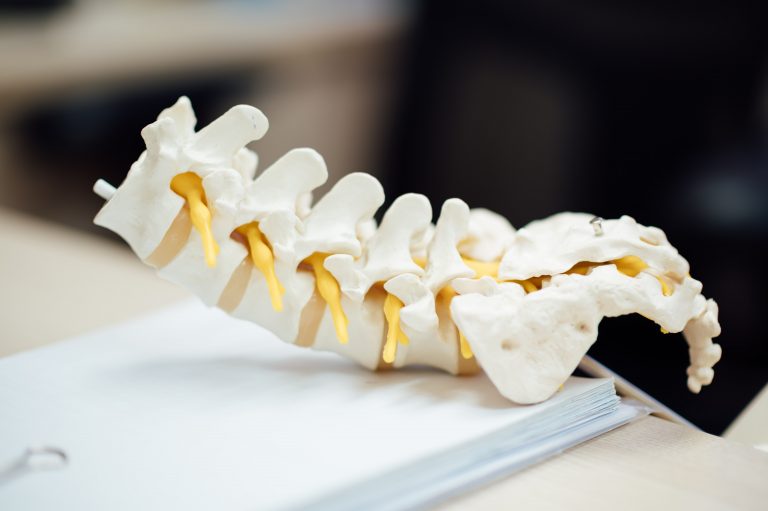Recovering from a Collapsed Disc
Although it may sound like a traumatic injury, a collapsed disc simply refers to a spinal disc that has lost height and thickness. This is usually a result of the natural breakdown of the disc due to age, which is often called degenerative disc disease. Over time the discs dry out and lose elasticity, causing them to shrink and lose height.
Disc degeneration happens to everyone and it’s possible to have a collapsed disc without experiencing any symptoms. Pain and other issues can occur because the loss of disc height can cause the vertebrae to come into closer contact, narrowing the nerve pathways in the spinal column. The increased friction between the vertebrae can also lead to bone spurs that cause further narrowing and nerve compression. Collapsed discs are often diagnosed after a patient experiencing nerve-related symptoms seeks out a doctor for treatment.
Conservative Treatments for a Collapsed Disc
Collapsed disc treatment almost always begins nonsurgically, with therapies designed to improve range of motion, take pressure off of discs and surrounding vertebrae, and manage pain as it arises. Here are three of the most common treatments doctors will recommend for collapsed discs and other degenerative disc conditions:
- Exercise and physical therapy. Staying active is critical to spine health and treating this condition. Regular exercises and physical therapy sessions with a qualified practitioner can help strengthen supporting muscles, tendons, and ligaments while improving spinal flexibility and posture.
- Hot and cold compression therapy. This is a widely recommended treatment that can be performed from the comfort of your own home. The use of heat, such as a heating pad, relaxes muscles and improves circulation. While a cold compress, like an ice pack, helps relieve pain and inflammation related to a collapsed disc.
- Medications. Over-the-counter pain medication, such as acetaminophen, or nonsteroidal anti-inflammatory drugs like ibuprofen or naproxen are proven to help patients with disc-related nerve compression deal with painful episodes and accomplish daily activities. In more severe cases, doctors may suggest an epidural steroid injection directly into the area surrounding the collapsed disc.
Be patient as you work to develop a personalized treatment plan, often it can take some trial and error to find the right combination of collapsed disc treatment options for you.
Spine Surgery with BEST Health System
After a collapsed disc diagnosis, your surgeon will typically first recommend conservative therapies such as physical therapy or pain medications. However, if these therapies are ineffective, you may be a candidate for surgery. Dr. Keith Girton is BEST Health System’s premier spine surgeon. He specializes in minimally invasive procedures to help patients regain function. Contact us today to learn more about one of our minimally invasive procedures.
